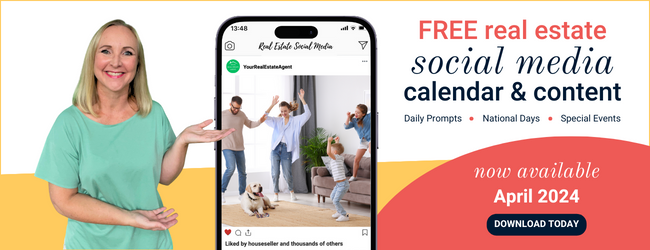As a real estate professional, you’re an expert on the subjects of buying and renting homes. But do you know whether you own or rent your real estate website? Here I explain the differences and discuss the pros and cons of each scenario.
Whether you’re part of a large real estate franchise group, run an independent real estate business or are an individual agent, you need a website. It’s vital to showcase your brand, it’s services and the properties you sell, lease or in some cases help buy.
And, just like homes, you can either buy or rent when it comes to “housing” your website. However, many real estate agents and principals don’t know the difference.
Do you own your real estate website?
When you arrange to have a website built for you or choose to have an agent website or pages created under the real estate network to which you belong, you may not have considered whether your site or those pages actually belong to you.
Many real estate businesses and agents are renting their websites, without realising this fact.
The key to working out whether you rent or own your real estate website is as simple as considering the following;
“If you stop paying for your real estate website will it be switched off?”
When you rent your website (either from a 3rd party provider or from your real estate business network) you pay a subscription fee on an ongoing month by month basis. Therefore, should you choose to cancel your subscription or leave the website provider or corporate network, your real estate website will be switched off.
This means, your clients will no longer be able to find you online and all the “digital goodwill” you have built up will be lost. You’ll have lost all the cash investment made to date and you will need to start over.
Whereas, if you own your website, it’s yours to keep, and you can take it with you when you move on.
“Over time your website has built up ‘digital goodwill’ – don’t lose that!”
Owning your website outright, just like owning a property, means you have full control over the building, or in this case the code base. Just like bricks and mortar, your website code can be modified by any developer of your choosing and means you have the freedom to add any form of extension to the site, or tracking code for advertising purposes.
Should you choose to move real estate networks or go out on your own you’ll have the freedom to restyle your website without having to rebuild it from scratch. All the investment made in your site to date, including all the content you’ve created and added to your website is not lost.
And just like a physical business address, no matter what changes you make, your website (or your virtual office) never has to disappear, allowing you to continually bring traffic to your door.

The different types of real estate websites
There are pros and cons to each scenario. So, which is the better option for your real estate business?
Essentially there are three levels of websites in the real estate industry:
1 – Top-level corporate sites
These are sites for large real estate brands with multiple offices, which are listed alongside the properties for sale or rent across the brand’s network. In many ways, these sites are more like directories. At this level, the website is pretty much guaranteed to be owned outright by the corporate brand – it will have been purpose-built and would have cost a significant amount to create.
The Pros
- Easy and convenient if your agency is part of a large brand.
- The pages are supplied to you by the network.
- Achieves consistent branding.
The Cons
- Restrictive – as you are only renting your pages from the network, you don’t have the freedom to grow your own website or choose its direction.
- If you leave the company, your pages will be switched off or transferred to a new owner. Then, you will have to start over, building your online presence again from scratch.
2 – Mid-level real estate office or independent agency website
This level is the starting point for independent real estate agencies who may operate a single office or a few branches.
It’s also possible for large real estate corporate networks to allow there offices or branches to have their own standalone websites. But in my 20 years’ experience, the only corporate network I have found to do this successfully is Ray White.
Ray White franchisees and agents have the option of setting up their own sub-websites and pages within the Ray White corporate website ecosystem, maintaining a large degree of control over their own online presence while still being part of the Ray White brand.
The Pros
- The freedom to control and grow your own online presence.
- Cost-effective.
- Provides consistent branding.
The Cons
- In the case of small independent agencies, you really need to check with your provider to find out if you own your site or are renting it.
- In the case of Ray White franchisees and agents, you are definitely renting the space from the corporate network. It’s also not currently possible on a Ray White sub-site to add the Facebook pixel and AdWords conversion code, which are essential for your real estate search and social media marketing. (However, I do have a workaround for this, so please come and talk to me if you are a Ray White agent or principal wanting to lift your digital marketing game!).
3 – Individual real estate agent website
I like to call these “brochure” websites, as they typically consist of very few pages of information. They’re also very hard to find on Google unless you actively spread the word that your site is out there and put a lot of time and effort into making it grow, through content marketing and paid advertising.
The Pros
- Allows you to take control of your personal brand.
- Clients today expect you to have an online presence as a real estate agent.
The Cons
- You may or may not own your site, depending on who created it for you – so it could disappear if you leave the network or stop paying for the service.
- You have to do a lot of work to keep your website visible and ensure your website traffic grows, is relevant and helps generate leads.
Growing your website and its visibility in Google search requires an ongoing content marketing strategy, which in simple terms means writing a weekly blog alongside paying for advertising with Google, Facebook and/or LinkedIn and Twitter.
Short-term social media marketing is the fastest way to ensure people find your website. But to really master the web you’ll need to be playing the long game and making sure Google is aware of your website and placing it over and above your competitors in search results.
Case study – how the Hoole.co website grew
To give you some insight into my own www.hoole.co website grew over time. For the first four months, social media brought 80% of my traffic and 20% came from direct visitors, i.e. people who had seen me present in-person at events.
Then at approximately the one year mark, 40% of my traffic came from social media, 40% from Google search, 10% from a small Google Adwords budget and 10% from direct traffic.
Today, 60% of my traffic comes from Google search… so as you can see the long game is all about Google, but in the mix, I continue to have paid advertising from search and social media and direct website visitors (people who know my URL).
If you’d like to learn more about the website growth journey and how you should be looking for the same types of results, get in touch with me.

Renting vs owning your real estate website
Whichever type of website you choose, the decision to own or rent is something you need to think carefully about. There are advantages and disadvantages to both scenarios, and it really depends on your business model and whether you view your website as a long-term business building opportunity or a short-term online brochure.
Here are some of the main points to take into account:
Renting
Short-term cost savings, but over the long term you pay more
There is typically no large upfront cost when you rent a website – instead, you pay a small amount each month, which is better for budgeting. However, this cost will quickly exceed what it would have cost to build a website you own (typically after 24 months). Ultimately, you will always pay over and above your websites true value.
Move website providers and you’ll start over
The other downside is that if you want to change website providers, you will lose everything you have invested in your website to date. This isn’t just money – you will also lose all the authority you have built up with Google and all the inbound links you have amassed from other sites to drive traffic to yours. You will literally have to start again from scratch (because you will digitally disappear) which can be devastating for your real estate marketing and overall online brand presence.
Owning
The code belongs to you, so you can change developer
This usually comes with a larger upfront cost as you have to pay a development team to create your real estate website. However, as it belongs to you, if you aren’t happy with the team, you can take the subsequent development or maintenance of your site elsewhere.
The best part is that Google will still be able to find you, as your site continues to be yours, so you will still be visible to your clients. And when you make modifications to your website code or retire pages (turn them off), you have the control to put redirections on those pages to new ones. This is similar to putting a mail redirection service in place, but the technical term is a 301 permanent redirect.
If you don’t have these URL redirections in place your website visitors will arrive at an error page (or 401 message) that tells Google that the page no longer exists and that ‘dead-end’ can be damaging for your brand, especially if there are lots of pages like this.
Check your hosting arrangement too
One thing that you should always check with custom built real estate websites is your hosting arrangements. If you are paying over $30 a month for your website hosting, it’s likely the development company is making a profit on it. This isn’t necessarily a bad thing – it’s just important to be aware of your options.
You move on in business, your website moves with you
Overall, there are far more advantages to owning your own website rather than renting one on a subscription basis. Wherever ‘business life’ takes you, your website can go with you, continuing to develop and grow and making you increasingly prominent online.
Fair and optimal real estate websites by Hoole.co
At Hoole.co, we give you absolute control over your online presence. Whether you want a real estate agent website created from scratch or additional web pages developed to sit alongside your corporate directory pages, we’ve worked with many real estate agencies and agents, from independent brands and franchise networks to find the optimal long-term digital strategy for them.
We’ve got an in-house website development team to assist in providing you or your real estate agency with the optimum long-term website strategy and our prices are very cost effective.
In fact, you may not realise but we are a full-service digital marketing agency who will look after the whole picture of your online brand, ensuring every element of your website is working for you as effectively as it should. We put in automated systems and tracking tools as well as assist with Google Search and Facebook social advertising solutions.
We make sure everything is connected and working seamlessly. And even better, everything we build for you is owned by you outright.
So whether you want an entire “house” built from scratch online, or just an extension to your current digital directory pages, please get in touch and we’ll be happy to help.


Join the Conversation - add your thoughts